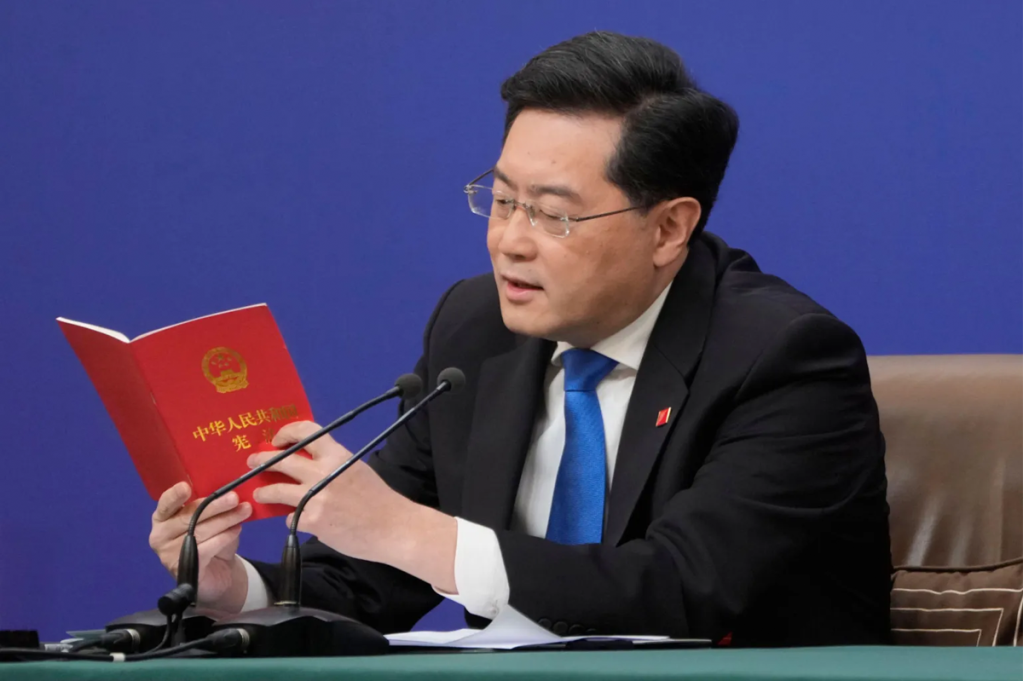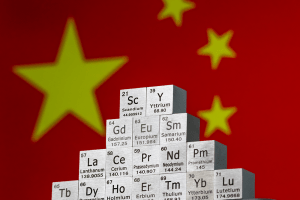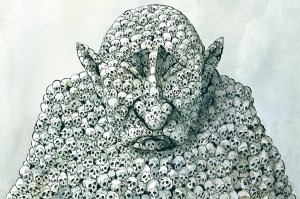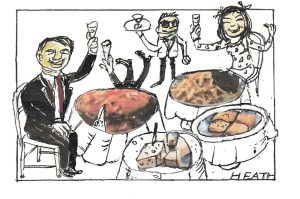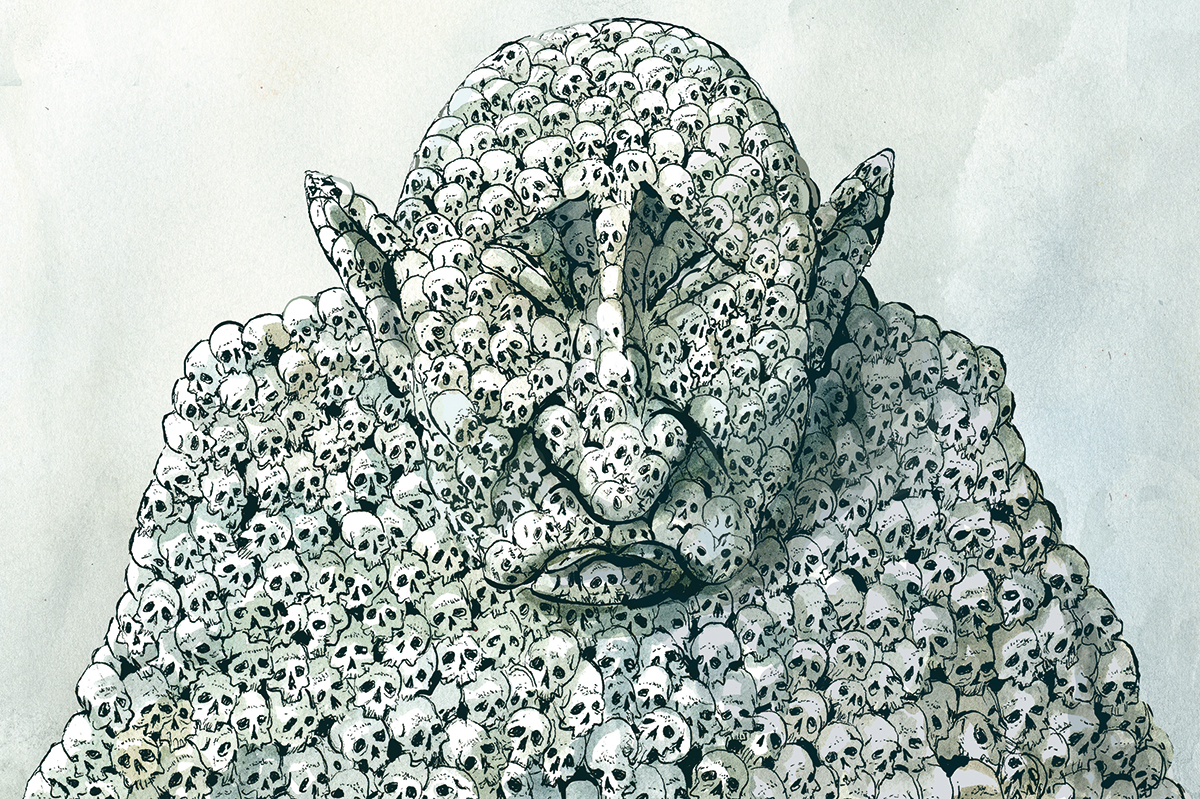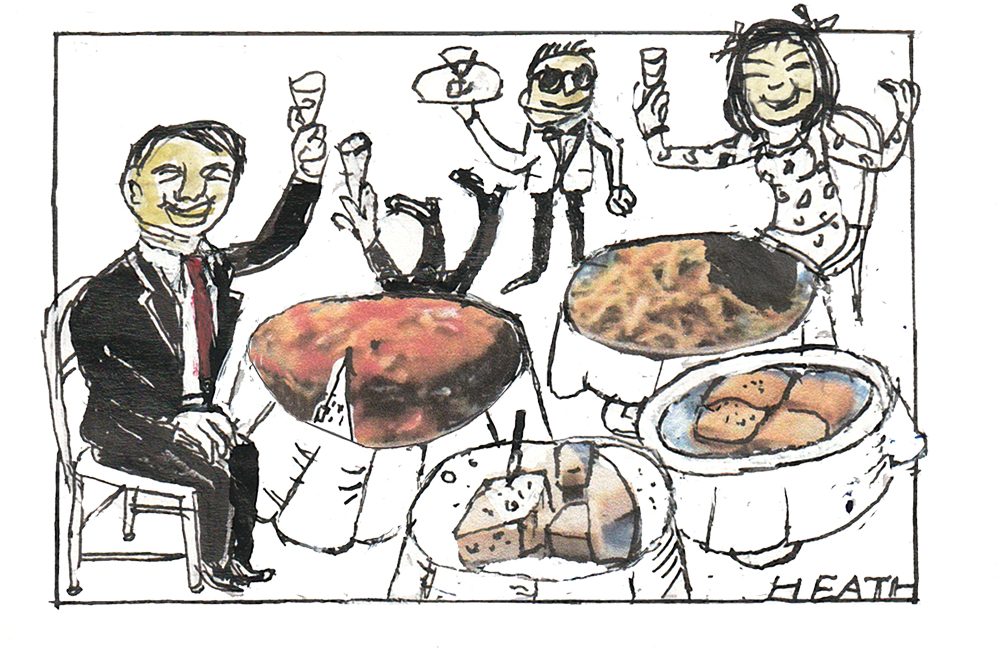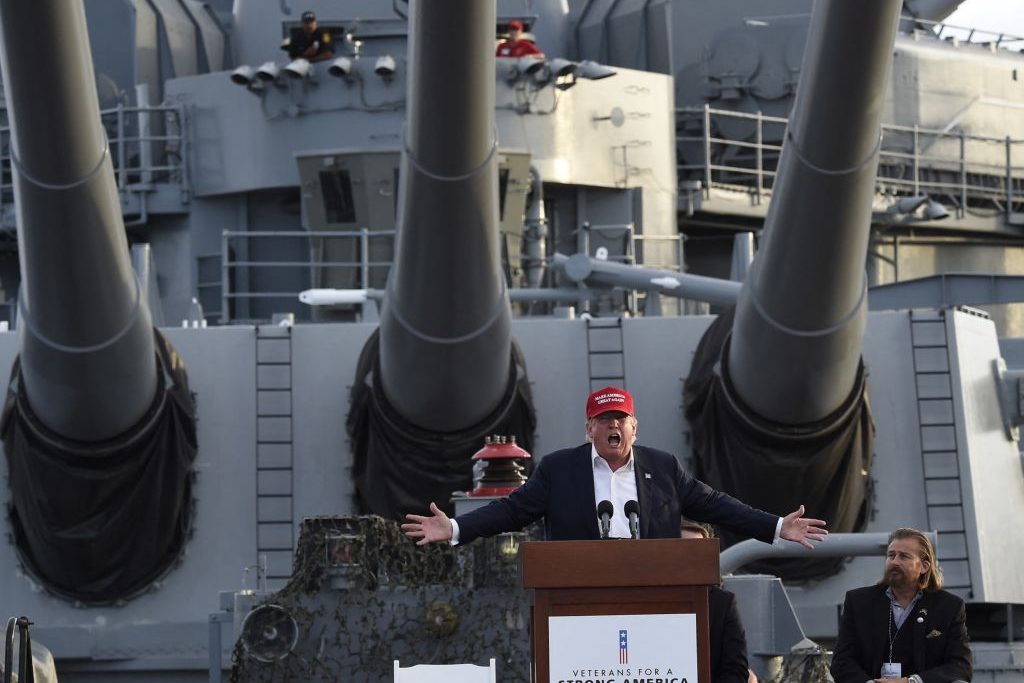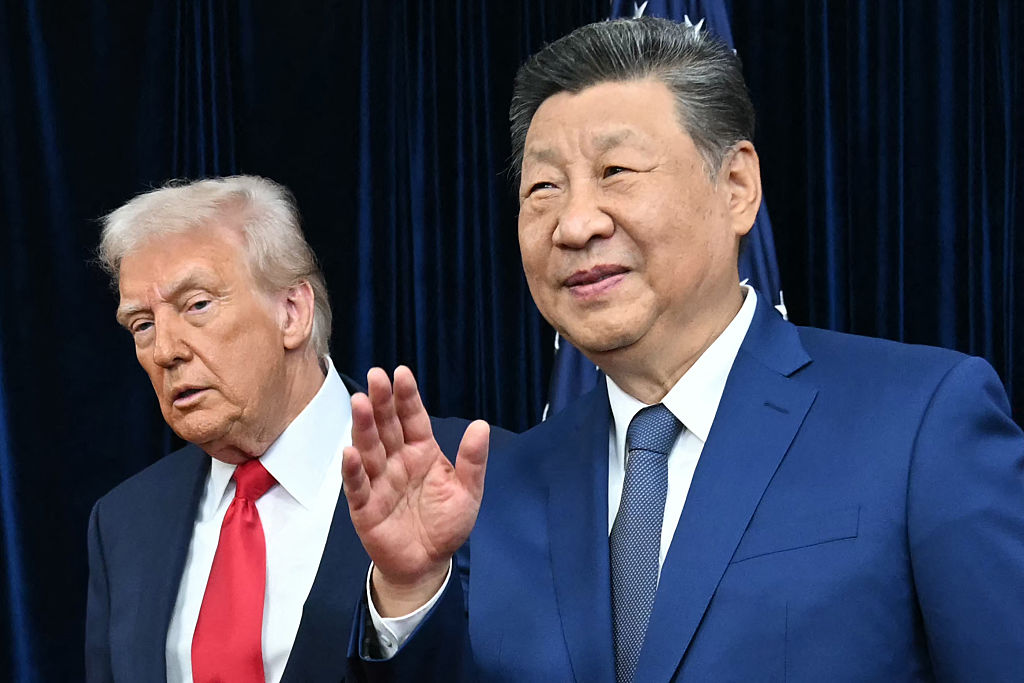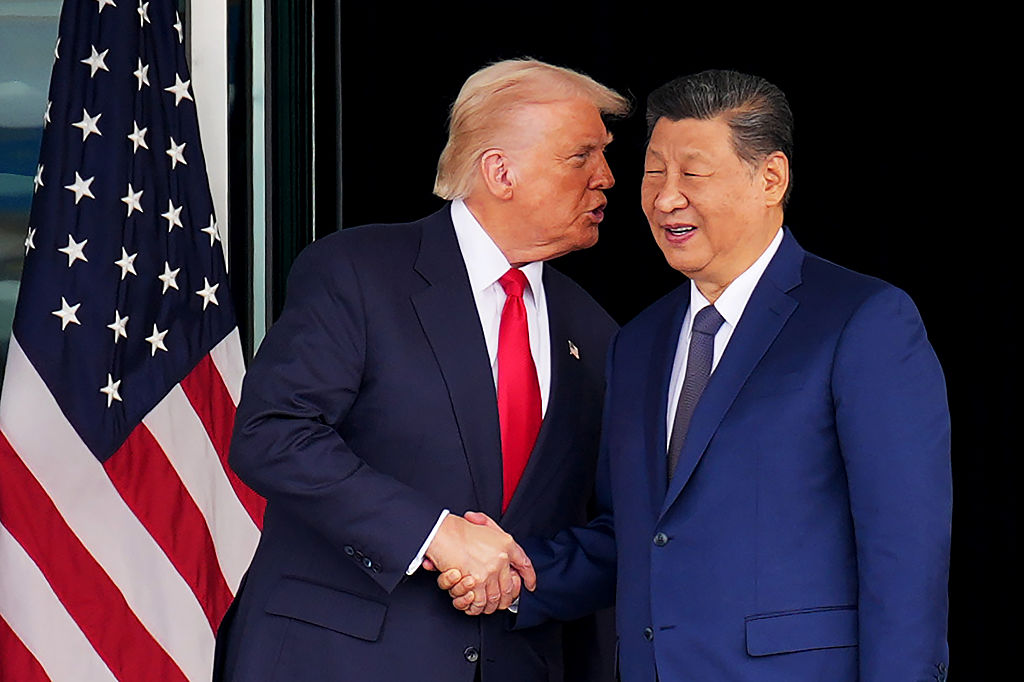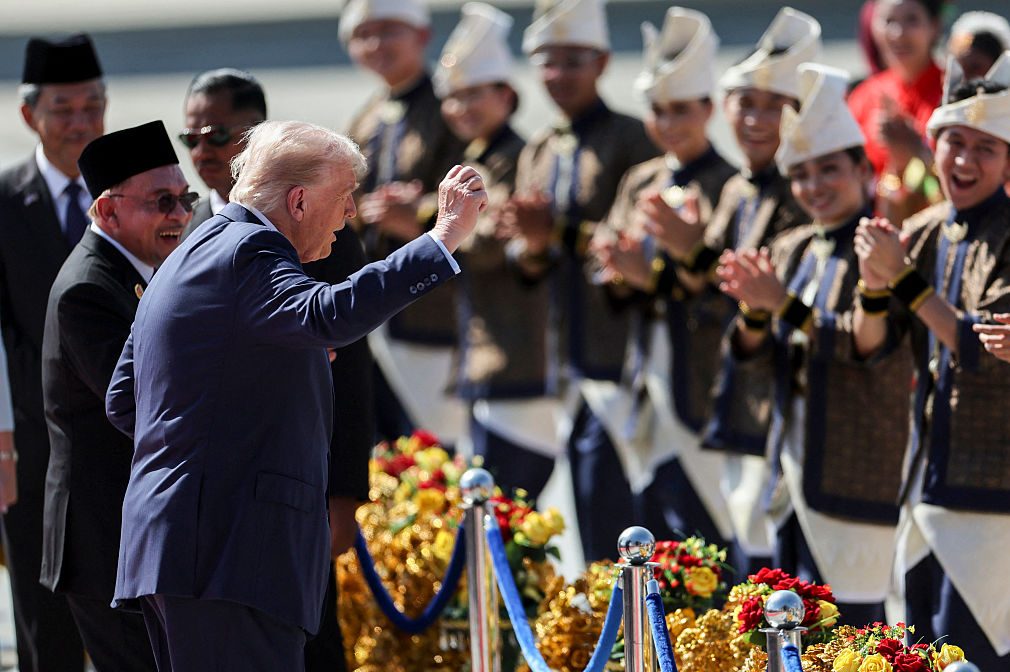China’s new foreign minister Qin Gang has come out growling, using his first media appearance to accuse the US of “all-out containment and suppression.” He said his country’s friendship with Russia was a beacon of strength and stability which “set an example for foreign relations” and asked: “Why should the US demand that China refrain from supplying arms to Russia when it sells arms to Taiwan?” He said that China and the US were heading for inevitable conflict if Washington does not mend its ways.
It was a fiery performance, even by the standards of Beijing’s “wolf warrior” diplomats. The tirade took place on the sidelines of the annual meeting of China’s rubber-stamp parliament, the National People’s Congress (NPC). America will not stop “the rejuvenation of China,” warned Qin, who was appointed foreign minister in December, replacing the more low-key Wang Yi. At fifty-six, Qin is one of youngest people to hold the post. He is a former ambassador to the US and is regarded as a trusted aid of President Xi Jinping.
Xi himself set the tone on Monday when he said, “western countries — led by the US — have implemented all-round containment, encirclement and suppression against us, bringing unprecedentedly severe challenges to our country’s development.” His remarks to members of a political advisory group that sits at the same time as the NPC were reported by state media.
Both men were stoking the Communist Party’s familiar cult of grievance and victimhood, though the tone was more bellicose than usual. In the CCP’s world view, deteriorating relations are always somebody else’s fault, and the responsibility for remedying them always lies with those hostile foreigners — even when the growing global push-back against China is a direct result of Beijing’s own behavior.
The tone of this week’s remarks should also be seen in the context of the pressure that Xi is under at home as a result of a weakening economy. He may appear to be all-powerful, increasingly surrounded by yes-men, but mounting economic problems are largely the result of his own policies, rather than US curbs on tech sales. His missteps include the now abandoned zero Covid controls, which strangled economic activity, a crackdown on tech companies, hostility towards foreign investors and a plunging property market. Banging the nationalist drum and blaming the perfidious Americans and their allies is a useful distraction from this.
It is Qin’s comments on Ukraine that will most concern western leaders, who have warned Beijing against supplying arms and ammunition to Vladimir Putin — a move that would make Xi an explicit party to his “best friend” Vladimir Putin’s barbarity, transforming superpower relations and delivering a severe jolt to the world economy in the process. The tone of Qin’s remarks further undermine China’s claim to be a peacemaker, a role that was in any case never really credible. China is in effect bankrolling Putin’s war through surging trade, including steep rises in Chinese imports of Russian oil, gas and agricultural products, helping make up for the falloff in sales to the West. China has increased exports to Russia of dual use items (which can be used for both civilian and military purposes), including semi-conductors supplied through shell companies in Hong Kong and the Middle East.
China has also been supplying drones, supposedly for civilian use, but used by the Russian military for reconnaissance and targeting. An investigation by the US-based Center For Advanced Defense Studies says China supplied anti-aircraft missile radar parts to a sanctioned Russian defense firm. The US has sanctioned a Chinese company for allegedly providing satellite imagery to the mercenary Wagner Group to assist in combat operations.
China has refused to condemn the invasion and continues to echo Russia’s justifications for the war — something Qin repeated Tuesday when he said the Ukraine war was being driven “by an invisible hand… using the Ukraine crisis to serve certain geopolitical agendas.”
In Beijing’s world view it is an American hand escalating the conflict. It is all depressingly familiar. An investigation by the Intercept, an online news organization, has even suggested that China and Russia have entered into a formal propaganda agreement, under which Beijing’s news outputs amplify Russian disinformation about the war. This includes Chinese repetition of debunked claims about a US-funded bioweapons program in the region and spreading Moscow’s propaganda that scenes of Russian atrocities were staged.
Xi has also used this week’s NPC meeting to push for more self-reliance in technology and innovation — a long standing policy of “decoupling” from the west, that predates western attempts to reduce their reliance on China. And it was confirmed that Beijing will hike defense spending by 7.2 percent this year to reach $224 billion, though most military analysts regard this as a considerable underestimate and that the true figure is far higher. What is clear is that China continues to race ahead with one of largest military build-ups ever seen during peacetime.
Relations between China and the US are already at their worst in decades after the shooting down last month of a Chinese spy balloon that crossed America. China insists it was an innocent weather balloon that blew off course, and Qin — again playing the victim — claimed the diplomatic row could have been averted if Washington had not acted with the “presumption of guilt.”
China is quick to accuse western critics of its human rights abuses at home and its growing aggression globally of having a “Cold War mentality.” Events in Beijing this week should serve as a stark reminder that this mentality is thriving behind the tall walls of Zhongnanhai, the Communist Party leadership compound in Beijing.
This article was originally published on The Spectator’s UK website.



